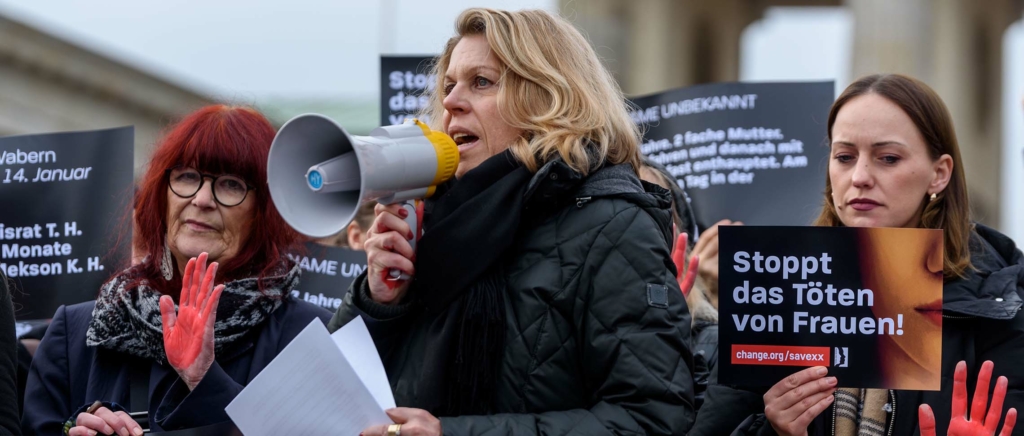Düsseldorf, 19 November, 81-year-old woman, stabbed to death by her husband (89); Wuppertal, 18 November, 61-year-old woman, critically stabbed by her husband; Hamburg, 14 November, 36-year-old woman, allegedly killed by her husband “through external force”. Cloppenburg, 11 November, woman allegedly killed by husband; Hanover, 7 November, 21-year-old woman killed by ex-boyfriend.
This is only a small and incomplete excerpt from a period of not even two weeks in the autumn of 2023 and demonstrates the appalling extent of femicides. “Femicide is generally understood to be the intentional killing of women because they are women, but broader definitions include all killings of women or girls,” reads the definition from the World Health Organisation (WHO). “Femicide is not about milieu, religion, relationship, illness, culture, family, clothing, desperation, education, honour or even love,” explained Prof. Dr Kristina Wolff, adding: “Femicide is always about power and control.” Her documentation for 2023 so far includes 170 girls and women – and these are only the publicly known cases of homicide.
In the sporting world, too, repeated incidents of violence against the partners of professional footballers, cyclists and tennis players have been publicised. It is a problem for society as a whole and by no means a fringe phenomenon. Women are injured, traumatised or even killed every day –because they oppose the male demand for power and control, for example a claim of ownership. The extent of misogynistic violence is shocking in our country too.” This statement was made by Federal Minister of Justice Marco Buschmann. And yet far too little is being done about it.
“The narrative that femicides only exist in other countries is simply not true. Other EU countries, especially Spain and France, are much further ahead in tackling the awful violence against women. More is being done there to raise public awareness of the problem of violence,” said Prof Dr Kristina Wolff. The so-called Istanbul Convention (“Council of Europe Convention on preventing and combating violence against women and domestic violence”) has also been legally binding for Germany since February 2018. But the researcher criticises the fact the federal budget does not provide any financial resources for the implementation of the European Protection against Violence Act. The focus should be on prevention, educational programmes for young and older men, independent research, anti-violence training and a new attitude in society as a whole towards outlawing violence against women. Instead, the population is left in the dark, “because there is data, but it is not explicitly presented”.
The annual press conference on the evaluation of police crime statistics (PKS) refers exclusively to “partner violence”, which means that all femicides committed by fathers, sons, grandsons, brothers, brothers-in-law, cousins, neighbours and/or stalkers go completely unmentioned. This is why a United Nations (UN) report on the increase in violence against older people this year refers to an analysis and statistics compiled by Prof. Dr Kristina Wolff for her Femicide Observation Centre Germany (FOCG), because reliable figures on femicides of this kind are not collected by any state authority. “It is important to research violence against women, to underpin it with data analyses and to keep raising the issue,” says Kristina Wolff, “but I would like even more for Germany to fulfil its voluntary commitment to the rule of law and finally implement the Istanbul Convention.”















